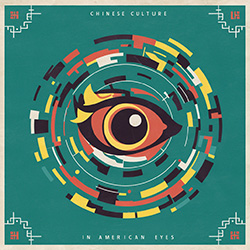- Autocratic Management
- Repressive Culture
- Confident Nationalism
- Advanced Science before 17th Century
- Conclusion
The Eastern world has long been a source of fascination and mystery to many Americans. As a Chinese individual, I'm intrigued by how Americans perceive Chinese culture. Interestingly, within academic circles, Chinese culture often doesn't receive the respect it perhaps deserves. This lack of regard is evident across various disciplines. In this article I would like to provide some examples from different fields of study to illustrate this point.
I want to emphasize that in presenting these American perspectives on China, I am not endorsing them. My role here is that of a reporter, sharing observations about how certain Americans have viewed Chinese culture and its influence. It's important to distinguish between the act of reporting these views and agreeing with them. To provide a balanced perspective, I will conclude this article by offering my own thoughts and analysis on this complex topic.
Autocratic Management
Peter Drucker, renowned as the founder of "Management by Objectives", had a critical view of Chinese management styles, characterizing them as autocratic. In his memoir Adventures of a Bystander, Drucker drew a controversial parallel between Mao Zedong's leadership tactics and Henry Luce's management of Time magazine. He claimed that Luce, like Mao, deliberately created divisions among his staff and fostered an atmosphere of distrust. Drucker attributed this behavior to Luce's upbringing in China, suggesting that his management style was directly influenced by Chinese cultural practices.
Drucker extended this line of thinking to other prominent figures, including President Franklin D. Roosevelt. Despite Roosevelt never having lived in China, Drucker argued that his leadership style exhibited similar autocratic tendencies. He traced this influence to Roosevelt's grandfather, who had served as a missionary in China. Through these examples, Drucker implied a far-reaching impact of Chinese cultural practices on leadership styles, even for those with indirect connections to China.
Repressive Culture
Lucian Pye, a renowned China expert at MIT, proposed a controversial theory about Chinese political culture. He suggested that Chinese politicians struggled with the concept of legitimate power use, leading to a cycle of repression and subsequent abuse of power. This perspective was echoed by Shun Long-Gi, a Chinese scholar educated in the United States. In his work The Deep Structure of the Chinese Culture, Shun characterized Confucian tradition as promoting a culture that represses instincts.
To illustrate this point, Shun contrasted American and Chinese attitudes towards premarital relationships. He argued that while many Americans embrace sexual freedom before marriage, a significant number of Chinese individuals, influenced by traditional values, avoid premarital intimate relationships. In Shun's view, this cultural difference represents a form of instinctual repression that may contribute to certain behavioral issues among Chinese people.
Confident Nationalism
Joseph Levenson, a prominent historian, proposed the controversial idea that Confucianism and modernization were fundamentally incompatible. He suggested that Chinese people faced a cultural dilemma: an emotional attachment to their traditional culture coupled with an intellectual recognition of Western technological superiority.
Michael Oksenberg, who served as a China policy advisor during the Carter administration, built upon Levenson's perspective. He characterized the Chinese attitude towards the West as "confident nationalism." In Oksenberg's view, this nationalism had a paradoxical nature, combining self-pity with a sense that the world owed China restitution for past injustices.
Interestingly, despite his critical stance on Chinese mentality, Oksenberg praised President George H. W. Bush's efforts to normalize U.S.-China relations in the aftermath of the June 4th Tiananmen Square incident. He described Bush's approach as "courageous leadership," highlighting the complex interplay between academic perspectives and practical diplomacy in U.S.-China relations.
Advanced Science before 17th Century
While many Western intellectuals have historically undervalued Chinese culture, British scientist and historian Joseph Needham stands out as a notable exception. After extensively studying Chinese scientific history, Needham concluded that China was indeed a great civilization, noting that Chinese science surpassed Western developments prior to the 17th century. However, it's important to recognize that Needham's admiration primarily focused on China's historical scientific achievements.
Yet, there's ample reason for pride in contemporary Chinese contributions to science and technology. For instance:
- Alan Huang made significant breakthroughs in optical computing at AT&T Bell Labs.
- Dr. Stephens Cheng played a crucial role in designing the Cray YMP supercomputer.
- Dr. Paul Chu led groundbreaking research in superconductivity at the University of Houston.
These examples are just the tip of the iceberg. Perhaps most impressively, Chinese engineers now constitute more than one-third of the engineering workforce in the United States, highlighting the ongoing and substantial impact of Chinese expertise in modern scientific and technological advancements.
Conclusion
The intelligence and industriousness of the Chinese people are evident worldwide. The success of Chinese communities in America, Taiwan, Singapore, Hong Kong, and other countries challenges the notion that Chinese culture itself is responsible for China's historical challenges. This global success raises important questions about the role of political systems in national development.
When asked if Japanese people are more intelligent than Chinese, one might consider a thought experiment: Would Japan have achieved its current economic and technological status if it had been under communist rule since World War II? This comparison highlights the significant impact of political and economic systems on a nation's development, beyond cultural factors.
As reforms sweep through the former Soviet Union and Eastern Europe, a pressing question emerges: When will China, often described as a "sleeping giant," fully awaken to its potential? Looking towards the future, there's hope that the 21st century will bring a shift in how Chinese culture is perceived by Western scholars. Rather than being characterized by terms like "autocratic," "power abuse," "repressive," or "confident nationalism," perhaps Chinese work ethic and discipline will be recognized as valuable cultural assets.Printed in Hamline International, Vol. 1, No. 1, 1990
